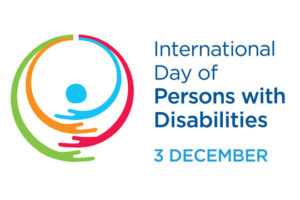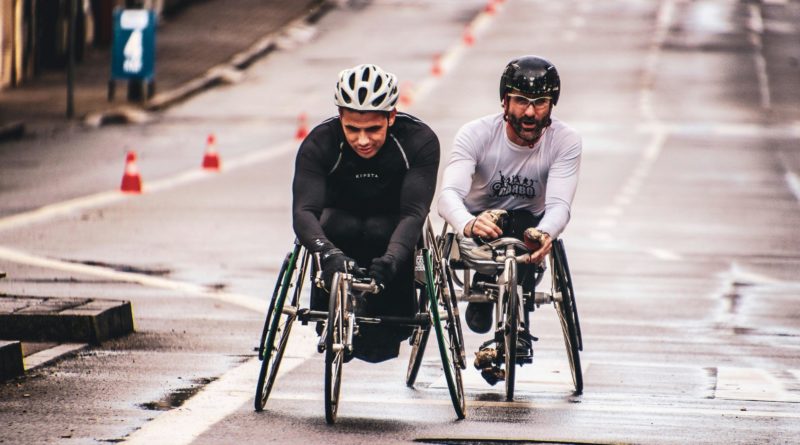HEALTH | 3 December 2023 – Celebrating International Day of persons with disabilities
International Day of Persons with Disabilities (IDPD) is a UN day that is celebrated every year on 3 December.

The day is about promoting the rights and well-being of persons with disabilities at every level of society and development, and to raise awareness of the situation of persons with disabilities in all aspects of political, social, economic, and cultural life. WHO joins the UN in observing this day each year, reinforcing the importance of securing the rights of people with disabilities, so they can participate fully, equally and effectively in society with others, and face no barriers in all aspects of their lives.
At its headquarters in Geneva, WHO organizes an annual IDPD event to educate the public, raise awareness, advocate for political will and resources, and celebrate WHO’s achievements. In 2022, the WHO launched the Global Report on health equity for persons with disabilities. This report sets forth the approaches and actions that countries can take to address the health inequities that persons with disabilities experience.
…
International Day of Persons with Disabilities 2023
…
3 December is International Day of Persons with Disabilities. On this Day, WHO joins partners around the world to call for action to achieve the sustainable development goals (SDGs) for, with, and by persons with disabilities.
More than 1.3 billion people experience significant disability today, which represents 16% of the global population. Many persons with disabilities die earlier, are at increased risk of developing a range of health conditions, and experience more limitations in everyday functioning than the rest of the population. We call these poorer health outcomes “health inequities” because they are largely avoidable and driven by unjust factors within and beyond the health sector. These factors include, for example, discrimination in our societies, inequitable policies, the determinants of health, lack of access or quality of care, and negative attitudes of health workers – to name a few. These health inequities are a stark reminder that persons with disabilities are too often left behind, and that achieving good health and well-being for all (SDG3) requires the meaningful participation and empowerment of persons with disabilities.
Achieving the SDGs for, with, and by persons with disabilities is now, more than ever, within our reach, so long as we are united. In 2019, the UN Secretary-General António Guterres launched the Disability Inclusion Strategy (UNDIS) to bring disability inclusion in every work and core functions of the entire UN system. The UNDIS has given us the tools to initiate a bold systemic transformation, and is driving unprecedented progress for, with, and by persons with disabilities around the world. These achievements are remarkable demonstrations of the value of systemic planning for disability inclusion, a cause for celebration, and a source of aspiration to pursue these efforts. Find out more about WHO’s activities on the implementation of the UNDIS.
…
 Memento Maxima Digital Marketing
Memento Maxima Digital Marketing
@[email protected]
SPACE RESERVE FOR ADVERTISTMENT


 Memento Maxima Digital Marketing
Memento Maxima Digital Marketing






